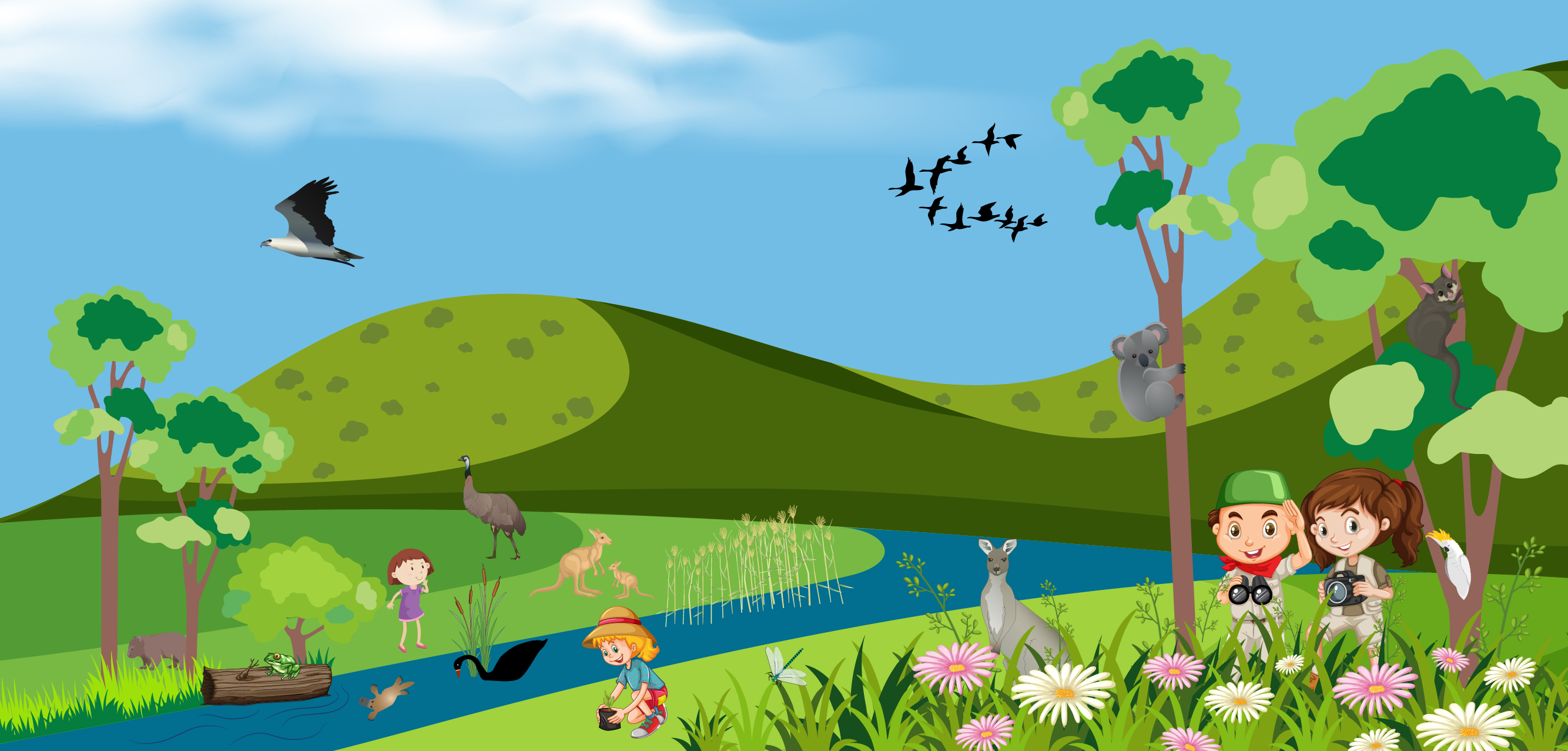
Full of Life!
Everywhere on our planet there is life. From the polar-ice caps and deepest oceans to the highest mountain peaks, life has found a way to exist. In fact, there are so many different living things on Earth that we are yet to discover and identify them all.
BIODIVERSITY (biological diversity) describes the variety of all living things. There are three basic levels of biodiversity:
- The number and kinds of species.
- The ecosystems (habitats); such as savannas, rainforests, oceans, forests, plains, marshes, deserts etc.
- The genetic diversity; all the different genetic variations between species.
Humans have been the overwhelming cause of the destruction and alteration of the natural ecosystems of creatures we share the planet with. We have a responsibility to try and protect and preserve these environments for future generations to enjoy.
Looking after the health of our environment helps to:
- Maintain a balance in water tables for productive agriculture.
- Allow clean water flows (locally and regionally).
- Provide clean air.
- Increase soil health.
- Support functioning ecosystems.
- Provide a habitat for wildlife.
Biodiversity Blitz Board Game
In this activity you are going to learn about some simple actions that you can do, or things you should avoid doing at your place to help your local environment maintain healthy biodiversity.
Step 1
Go through the positive and negative actions outlined on the Activity Sheet and then play the game.
Step 2
You will need a dice and something to use as player tokens. Why not use gum nuts or a stone from the backyard as your individual player token.
Step 3
Download and print out a copy of the Biodiversity Blitz Board Game. Make it as large as you can.
Step 4
Play the game with some friends and see who wins. This game is just like snakes and ladders but with rivers and trees. If you land at the top of a river, you have to slide down to a lower point on the game. If you land at the base of a tree, you can climb up to the top, skipping a lot of squares.
Positive Actions
You wash your car on the grass
Washing your car on the grass is better for the environment than washing it on a hard surface. When you wash your car on the grass, all the soapy water gets soaked up by the grass. When you wash it on a hard surface, the soapy water can flow down the stormwater drain and into a creek or river, causing pollution.
You keep your cat inside at night
Pet and feral cats kill over two billion reptiles, birds and mammals per year in Australia. Keeping your cat inside at night stops them from hunting and killing native animals.
You put recycling in the yellow bin
Recycling transforms things that are empty, broken, used or unwanted into brand new useful things. Recycling uses a lot less money, energy and saves a lot of the Earth’s natural resources.
You plant a native tree
Trees create the air we breathe and keep our air healthy. They provide habitat for all sorts of animals.
You join a Landcare group
Landcare groups do great things for our environment and communities, like planting trees and pulling out weeds. Anyone can join a Landcare group!
You pick up rubbish at the beach
Picking up your rubbish and putting it in a bin will help protect animals and reduce pollution.
You go birdwatching
Wherever you go, there are birds! They are colourful, have beautiful songs and watching them helps you connect with nature.
You plant wildflowers for the bees
Wildflowers help to encourage bees and other important pollinators to the area. Pollination is important because it leads to the production of fruits we can eat, and seeds that will create more plants
You start a compost bin
You can recycle leaves and other plant materials at home by setting up a compost bin. You can use the compost to help your plants grow.
You remove weeds from your farm
A weed is a plant that is growing where it is not wanted! They steal nutrients and water from other plants, attract bad bugs into the garden and sometimes smother everything.
Negative Actions
You leave your rubbish behind
If you don’t put your rubbish in the bin, it can end up in a creek, river or the ocean. This causes pollution and can harm animals that live in the water.
You kick a bee hive
If you kick a bee hive you might have an angry swarm of bees trying to sting you! If you find a hive of bees, leave it alone.
You leave food out for foxes
Foxes are a pest animal in Australia, which means that they don’t belong here. Leaving food outside, such as dog food, will attract foxes to your backyard. Foxes kill chooks and other pets, as well as native animals like lizards, turtles and birds.
You remove trees from the riverbank
Trees next to a creek or river are important as they help stop pollutants from entering the water, provide habitat and shade. Tree roots hold the soil together which stops erosion.
You let your cows in the creek
When cows go in the creek to drink, they squash plants next to the waterway and make the water muddy, making it difficult for fish and waterbugs to see. Cows also poo in the water, causing pollution. (Or should we say POO-LUTION!)
You let your dog attack wildlife
Like cats, a natural instinct for dogs is to hunt and chase. If you take your dog to the park, beach or bushland, keep it on a lead so it doesn’t chase or kill native animals.
You remove tree hollows from the bush
Tree hollows, including hollows in fallen trees, provide habitat for native animals such as lizards, possums, birds, echidnas and quolls.
You sweep lawnmower grass into the gutter
After you mow your lawn, sweep up any grass clippings left in the gutter and put them into the compost or green bin. This will stop them from ending up in the stormwater drain and reaching the creek, causing water pollution.
